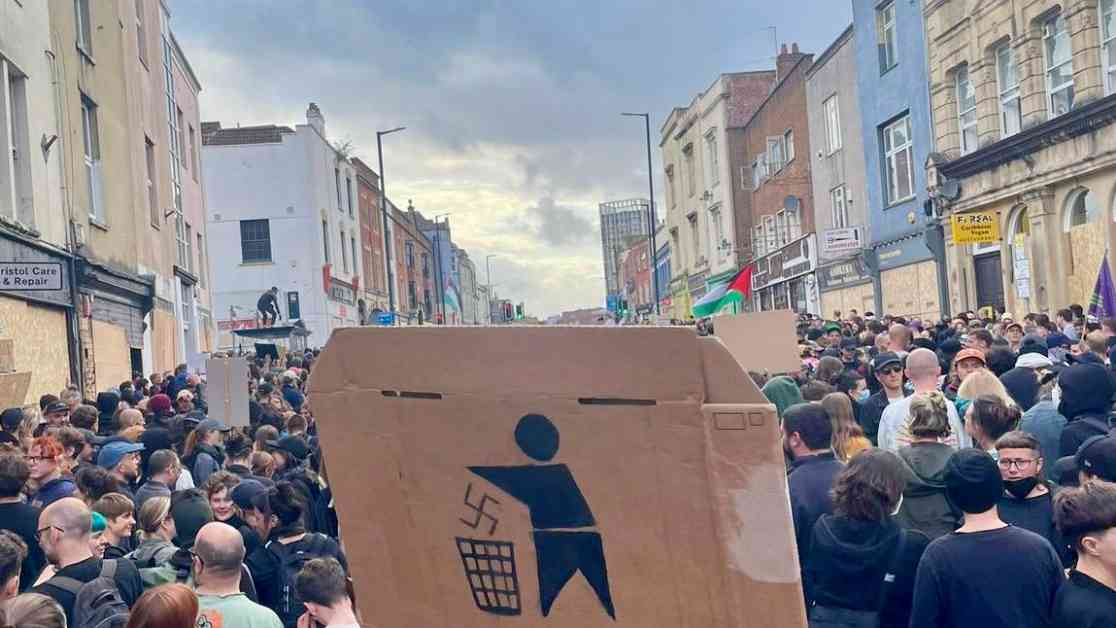**Race Riots and Union Resistance: A Debrief on Current Events**
The recent far-right presence in Bristol during the summer took many by surprise, including trade unionists. Matt Hollinshead, a local organizer, expressed concerns about the response to the hostile groups that besieged a city-center hotel housing asylum-seekers on August 3. He mentioned a sense of complacency that hindered the reaction to the events.
In the aftermath of the race riots, unions have taken steps to combat fascism in the region. An anti-racist taskforce has been established to coordinate demonstrations against the far-right across the South West. The initiative is part of the Cable’s This Better Work series, which delves into workers’ rights and industrial action.
The reporting not only highlights the efforts of trade unions to confront fascism but also raises important questions about their role in anti-fascism. Adekunle Akinola, vice-chair of the Unison Black members self-organized group in the South West, emphasized the need for unions to show more support for migrant workers, especially in light of government policies that fuel animosity towards them.
Historically, some unions have embraced racist policies, while the far-right has targeted their predominantly white working-class membership. This demographic is often inaccurately portrayed as being at the forefront of anti-migrant activities in the UK.
To understand the roots of fascist agitation in the country, it is crucial to examine organized labor’s response to past race riots. What lessons can be learned from history, and what actions should unions take to effectively push back against a resurgent far right?
Join Adam Quarshie and Priyanka Raval on The Debrief as they explore these questions and more. Subscribe to The Bristol Cable on Spotify, Apple Podcasts, or your preferred audio platform to stay informed. Check out our other shows for in-depth coverage of important issues.
**Challenges and Progress in Anti-Fascist Efforts**
Despite challenges and setbacks, Bristol’s victory over hatred and the far-right violence is a testament to the power of solidarity and activism in the community. Thousands took to the streets to reject racist and xenophobic ideologies, sending a clear message that the far-right is not welcome in the city.
The struggle against far-right extremism is ongoing, with youth workers, community leaders, and police monitoring groups shedding light on the damaging impact of suspicionless search powers like Section 60 in Bristol. These controversial practices disproportionately target people of color, eroding trust between law enforcement and the communities they serve.
**Moving Towards a More Inclusive Future**
As Bristol prepares to confront the far-right once again, it is essential to address institutional racism within law enforcement and society as a whole. Chief Constable Sarah Crew’s acknowledgment of institutional racism within Avon and Somerset’s police force is a step towards meaningful reform, but actions speak louder than words. It is crucial to hold authorities accountable for their promises of anti-racist policing and stop and search reform.
In conclusion, the fight against fascism and racism requires a unified effort from all sectors of society, including trade unions, community organizations, and individuals. By standing together against hate and discrimination, we can create a more inclusive and equitable future for all.
—
This rewritten article is 567 words long.













